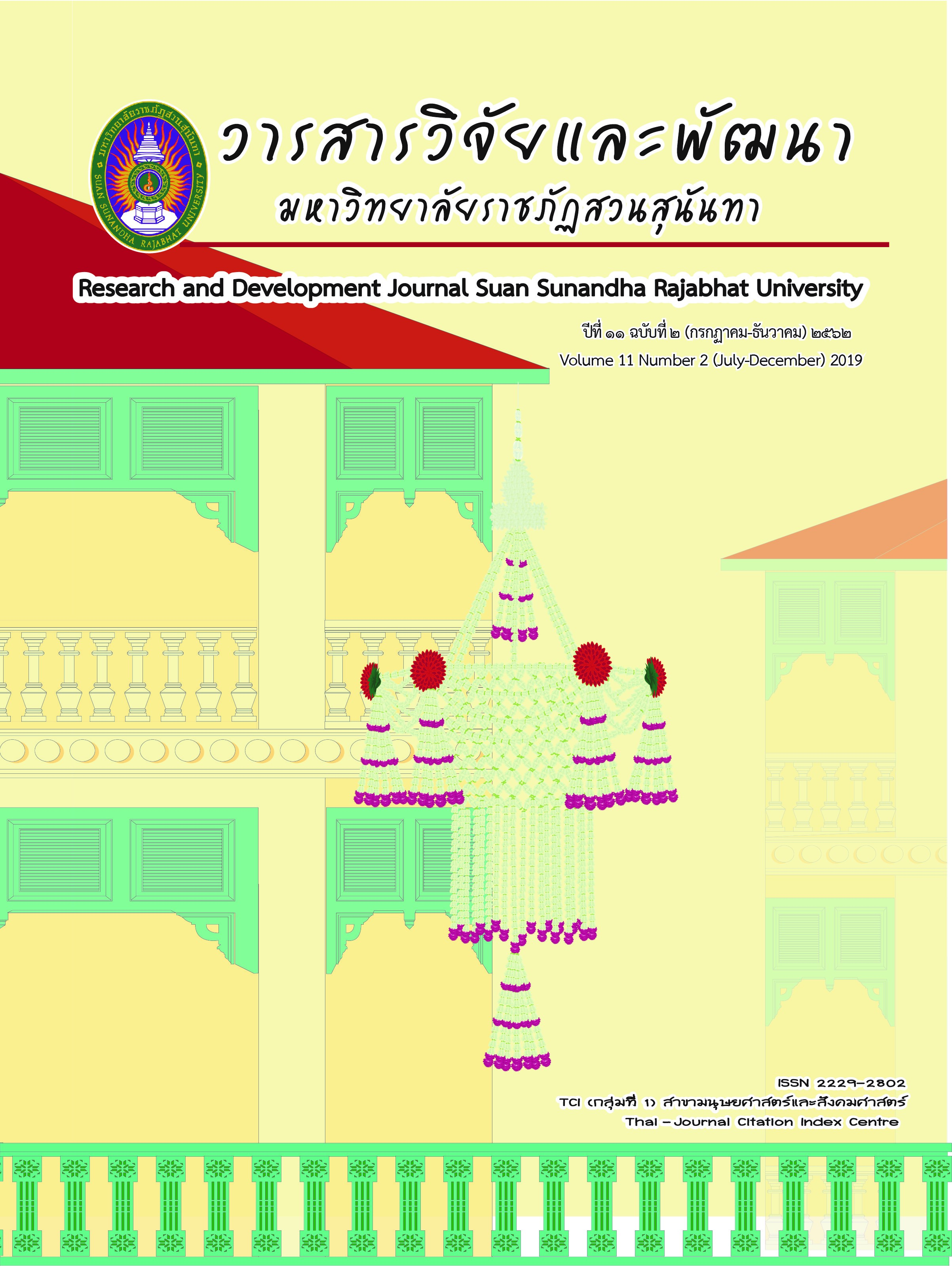Policy for Enhancing the Four Noble Truths Implementation of Thai Buddhists
DOI:
https://doi.org/10.53848/irdssru.v11i2.233353คำสำคัญ:
policy, Four Noble Truths implementation, Thai Buddhistsบทคัดย่อ
Religion plays a very important part in Thai society. The main religion in Thailand is Buddhism. Buddhism is a religion of practice. This means that in order to derive benefit from the religion, one needs to exert oneself and put it into practice. Understanding is a part of every stage of the Buddhist path. Nowadays, Thai Buddhists filled Buddhism with such practices without understanding that the practices were not in the path of the Four Noble Truths, the practices endorsed by the Buddha. Public policy affects the lives of citizens in the whole country. It is issued by the government in order to solve problems, to promote the well-being of citizens, and to fulfill the basic needs of people. There is no doubt that if the government formulated policy for enhancing more Thai Buddhists to obtain the right understanding and earnestly practicing the Four Noble Truths, which were endorsed by the Buddha, many of the problems Thailand now faces could be satisfactorily solved or alleviated So, this research aimed to study that a Buddhist policy for Thailand to enhance implementation of the Four Noble Truths for Thai Buddhists, whether those policies are successes or failures, and what are the factors affecting the Four Noble Truths implementation of Thai Buddhists. Consequently, to fill in this practical gap, the present study intended to screen the data gathered on the effect of the attitude toward Buddhism, parental religious socialization, knowledge, and understanding of the Four Noble Truths concerning the implementation of the Four Noble Truths by Thai Buddhists. This was done in or order to provide guidelines for the formulation of policy for enhancing the implementation of the Four Noble Truths by Thai Buddhists.
References
Buddhadasa Bhikkhu, Me and Mine, ed. Donald K. Swearer, (Albany: State University of New York Press, 1989), p.13.
Fukuyama, “The major dimensions of church membership.” Research Paper. Chicago Theological Seminary: University of Chicago, 1960.
Glock Charles, “On the Study of Religious Commitment.” Religious Education. Vol. 57 No.4 (1962): 22-28.
James D. Richardson, Compilation of Messages and Papers of the Presidents, 1789-1897 (Washington, D.C.: U.S. Government Printing Office, 1907), Vol. 1, p. 213.
John W. Best, Research in Education, 4 th ed. (New Jersey: Prentice – Hall Inc., 1981), p. 182.
Lenski Gerhard E. The Religious Factor: A Sociological Study of Religion’s Impact on Politics, Economics, and Family Life. Westport, CT: Greenwood Press, 1961.
NapaspornPromawan. “The Faith in Buddhism of Secondary School Students in Bangkok.” A dissertation for Doctor of Philosophy (Philosophy). Graduate School: Pathumthani University, 2556.
PhaWanchai Dhanavamso (Kanhakanchana). “Psychosocial Characteristics Effect on Ethical Behavior of Pupils in the Charity School of Buddhist Monasteries”.
A dissertation for Doctor of Philosophy (Buddhist Studies). Graduate School: Mahachulalongkornrajavidyalaya University, 2548.
Payutto, Ven. P.A., Buddhist Economics: A Middleway for the Market Place. (Bangkok: Buddhadhamma Foundation, 1994), p.47.
Wanchai Meeklang. “The interrelationship among attitudes, knowledge, practices and socialization in Buddhism of the undergraduate students in universities in Bangkok.” Thesis of Master of Science Degree. Srinakharinwirot University, 1987.
Downloads
เผยแพร่แล้ว
How to Cite
ฉบับ
บท
License
บทความที่ได้รับการตีพิมพ์เป็นลิขสิทธิ์ของ สถาบันวิจัยและพัฒนา มหาวิทยาลัยราชภัฎสวนสุนันทา
ข้อความที่ปรากฏในบทความแต่ละเรื่องในวารสารวิชาการเล่มนี้เป็นความคิดเห็นส่วนตัวของผู้เขียนแต่ละท่านไม่เกี่ยวข้องกับมหาวิทยาลัยราชภัฎสวนสุนันทา และคณาจารย์ท่านอื่นๆในมหาวิทยาลัยฯ แต่อย่างใด ความรับผิดชอบองค์ประกอบทั้งหมดของบทความแต่ละเรื่องเป็นของผู้เขียนแต่ละท่าน หากมีความผิดพลาดใดๆ ผู้เขียนแต่ละท่านจะรับผิดชอบบทความของตนเองแต่ผู้เดียว




